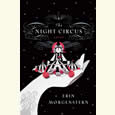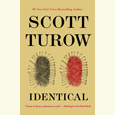The Naturalist
Celebrated nature writer Michael Sims talks with Chapter 16 about his memoir-in-progress, Kingfisher Days
If there’s any question about whether it’s still possible to be a Renaissance man in the digital age, the answer is Michael Sims. Though he would never suggest such a self-congratulatory term, Sims does characterize himself in a way that certainly fits the role: “I’m interested in natural history, the history of natural history, literature in general (especially Proust, Nabokov, Dickens, E. B. White, Thoreau, Rilke, George Eliot, Rachel Carson, Annie Dillard, and children’s animal stories), Victorian genre literature, movies outside the Hollywood trash factory, and the visual arts.”
 Sims, a Crossville native, is a poet, an essayist, a book critic (he publishes frequently in The Los Angeles Times and The Washington Post among other publications), and an editor and annotator of five different volumes of classic literary works—including this summer’s much-celebrated anthology, Dracula’s Guest—with two more coming in 2011. He’s also a gifted photographer, whose work accompanies this interview, and next year will see the publication of his first biography: The True Story of Charlotte’s Web: E. B. White’s Eccentric Affair with the Natural World and How It Inspired a Children’s Classic.
Sims, a Crossville native, is a poet, an essayist, a book critic (he publishes frequently in The Los Angeles Times and The Washington Post among other publications), and an editor and annotator of five different volumes of classic literary works—including this summer’s much-celebrated anthology, Dracula’s Guest—with two more coming in 2011. He’s also a gifted photographer, whose work accompanies this interview, and next year will see the publication of his first biography: The True Story of Charlotte’s Web: E. B. White’s Eccentric Affair with the Natural World and How It Inspired a Children’s Classic.
But Sims’s vast, shimmering artistic gifts have so far been on best display in the work he does as the author of four books about science and nature: In the Womb: Animals (a companion to a National Geographic Channel series, National Geographic Books, 2009); Apollo’s Fire: A Day on Earth in Nature and Imagination (Viking, 2007); Adam’s Navel: A Natural and Cultural History of the Human Form (Viking, 2003); and Darwin’s Orchestra: An Almanac of Nature in History and the Arts (Henry Holt, 1997). Today, he answers questions from Chapter 16 about his memoir-in-progress, Kingfisher Days, which chronicles his own response to the natural world:
Chapter 16: Kingfisher Days is a memoir, but it seems—from this excerpt, at least—to be a somewhat unconventional memoir, unless you’re eventually planning to divulge your recovery from drug addiction, sex addiction, or alcohol addiction?
Sims: I’ll be revealing that I’ve been clean since Betty Ford and that I always thought of my sex addiction as just a way to meet new people.
Kingfisher is mostly a memoir about my hot-and-cold, exciting and disappointing affair with the natural world (that big stage over there behind Wal-Mart). The structure is a single year, but the events in the book take place from throughout my life, so one entry may be from 2007 and the next from 1969. So it’s unconventional from the first. And yes, my family, which is only normally crazy, does show up at times.
Also, the more I work on this book—which right now has to be in the background of other projects—the more I realize that it may become two books—cleft in twain, like Gertrude’s heart.
Chapter 16: “Disappointing” is not word I ever expected to hear from Michael Sims in connection with the natural world. You’ve always seemed to have one of those relationships that others envy—ever passionate, ever curious, unflaggingly committed. Thoreauvian. Wordsworthian. Are you telling us that nature actually can betray the heart that loves her?
Sims: Well, I think a love affair with nature is bound to remain one-sided. I get by on curiosity and a sort of naive affection because I don’t go looking for meaning. Nature is deeply creative, but blindly, in an utterly ungoverned and heartless way. Despite the calendars of baby koalas, the urbane jazz behind PBS programs about penguins, and Ansel Adams’s old-movie panoramas, nature is a godawful mess. Lung cancer and the mildew in grout are as natural as the song of the vireo. I don’t want to look at just the pretty stuff. I want to face the world and learn about it and admit that I find it as horrifying as it is glorious.
And yet, because I consider the bread-and-circus distractions that contemporary urban America tries to sell me not only pointless but offensive, which makes me avoid TV and most radio, I find after only a few minutes alone with the real world, among Queen Anne’s lace and woodchucks and fox tracks and a mockingbird’s cover-band concert, that I feel peaceful and ready to face—whatever’s next. Why? I don’t know.
Chapter 16: Do you ever wonder if all those nature shows on television—and even all those calendars featuring kittens and puppies—are a mark of how desperate everyone is for the peace of the field of Queen Anne’s lace, even if they don’t quite know how to find it? Or do you see your own engagement with nature as a unique response to your particular childhood or genetic makeup?
Sims: My need to write about my response to nature is just one of many ways to react, perhaps just a desire to scrawl “I was here.” I think that most of us feel some version of an urge to connect with a larger and more natural world. We hike or watch nature programs or hunt or feed birds or simply hang a calendar of tropical sunsets on the wall of our office cubicle. The latest handgun massacre in an office and the update on who Naomi Campbell hit this week both take place against the backdrop of a beautiful and impossibly large cosmos. We’re very small.
Chapter 16: For the past five years or so, at least since the publication of Richard Louv’s Last Child in the Woods, much has been made in the media about how today’s children suffer from “nature-deficit disorder.” Can you talk a little bit about growing up in Crossville and what nature meant to you then?
Sims: I was born and grew up in the Homestead community a few miles from Crossville. When I was a child, the area was mostly countryside; now it’s suburbs, but of course the suburbs of Crossville are not exactly metropolitan. Our road was dusty gravel when I was a child. We didn’t have a car or a telephone, and sometimes we didn’t have indoor plumbing. I went outdoors for lots of reasons.
I think that what perhaps turned out good for me is something that other people might see as bad: I was on my own a lot, in one way or another, whether socially or mentally or emotionally. (It may also explain other problems.) My solution was to stick a book in my pocket, pick up my binoculars (I’ve had binoculars and telescope and microscope since I was eight) and ramble in the woods.
Hundreds of acres of woodland began about fifty feet from our back door. Later I rambled for miles and miles, but as a youngster I wandered the closer woods, including the wood lot between our house and our great-uncle and -aunt next door, Bud and Matt, who show up in “Every Page a Ghost,” especially in the “Path” section. I first learned to identify birds in that wood lot. Pileated woodpeckers came to our yard, as did raccoons and possums and skunks.
I feel as if I grew up with a field guide in one hand and a children’s animal story in the other. Field guides introduced me to my neighbors and taught me the magic of naming and, by implication, the evolutionary genealogy behind the similarities of kinship. The novels—so many good ones, Rabbit Hill, Bambi, The Cricket in Times Square, and perhaps first of all a tiny first-reader sort of book called Brown Puppy and the Falling Star—taught me empathy as stories have always taught it: by taking us inside another’s otherwise opaque life.
Chapter 16: It sounds like you think adults suffer an estrangement from nature at least as devastating as that afflicting children today.
Sims: When people don’t step out of their cars even to buy their cardboard lunch of preservatives and growth hormones, and children don’t even know that eggs come from chickens, I think we clearly do have, individually and as a society, a nature deficit. That would be fine if we actually lived our lives in TV bubbles, but we don’t; every molecule of air and bite of real food, every drop of gasoline and fiber of T-shirt comes, as it always has, from the earth that produced us.
I think a lack of awareness of a natural context for life, whether labeled a disorder or not, results in ignorance about everything from conservation to evolution, leaves people unable to even know how to vote responsibly, and (I think) results in what Chet Raymo calls spiritual vertigo, and a lack of connection, a lost sense of context.
Chapter 16: For you, it cannot have taken long to move from the need to see clearly to the need to understand deeply to the need to share fully. Talk to us about “the rambunctious joy of typewriter keys carving letters on the page.”
Sims: I became a writer in part because I swooned before new paper waiting like an audience’s hush before music—all that beautiful pregnant white silence. Could I somehow learn to channel the clamor in my head onto the paper? Then came thousands of pages of notebooks scribbled with ballpoint pens and those old Flair pens, with three out of four words crossed out.
After notebooks, I learned to write on a cheap portable typewriter whose metal casing had no floor underneath the keys; it was bottomless, like the car I had driven with Flintstone foot-power as a toddler. I loved the vaudeville ruckus of a typewriter, how sometimes the keys would all try to squeeze through the door together like Keystone Kops, then their smudging braille and a blurry J on your fingertips as you disentangle them, then your own little FBI prints showing up on the keyboard. Through my omnipresent magnifying glasses, I would examine the letters on the page, which up close looked wedged and hammered like cuneiform. You could even see the fibrous weave of the paper. My MacBook has many sly millennial tricks and I have become quite fond of it, but I miss the paper and ink and, sometimes, the noise.
I think of writing as a hands-on craft, like sculpture. As an informative nonfiction writer I make cabinets instead of sculptures, but in my case utility makes a great armature for creativity. This is one reason why I don’t like working with the electronic copy-edits that some publishers send me nowadays. They steal yet another hands-on aspect of my inky old guild and make it take place inside a box as if I were handling moon rocks through prosthetic gloves instead of trying to shape pieces of wood into a cabinet.
To read an excerpt from Kingfisher Days, click here.





